Planetary Science
-
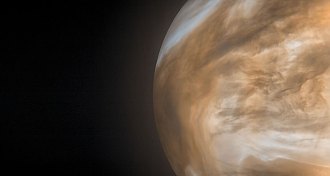 Planetary Science
Planetary ScienceVenus’ thick atmosphere speeds up the planet’s spin
Venus’ thick atmosphere can push on mountains on the surface, changing its rotation period by a few minutes every day.
-
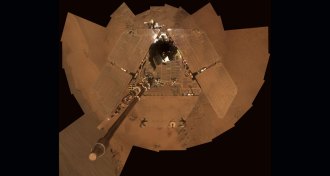 Planetary Science
Planetary ScienceThe Mars rover Opportunity is sleeping, not dead, NASA says
Opportunity is hunkered down in a deep sleep on Mars to ride out what’s looking to be a long dark dust storm.
-
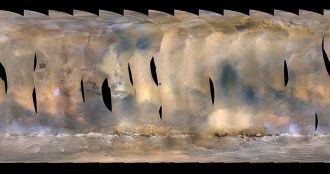 Planetary Science
Planetary ScienceOpportunity rover waits out a huge dust storm on Mars
NASA’s Opportunity rover is in low-power mode to preserve battery life while a vast dust storm blankets part of the Red Planet.
-
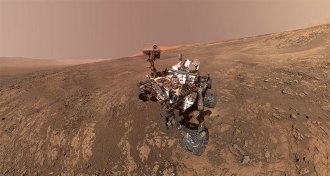 Planetary Science
Planetary ScienceCuriosity finds that Mars’ methane changes with the seasons
The Curiosity rover found seasonally changing methane in Mars’ atmosphere and more signs of organic molecules in an ancient lake bed.
-
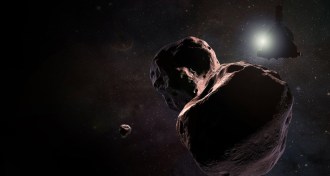 Planetary Science
Planetary ScienceNew Horizons wakes up to begin Kuiper Belt exploration
The New Horizons spacecraft just woke up to get ready for its New Year’s Day flyby of the distant space rock Ultima Thule.
-
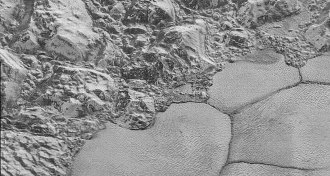 Planetary Science
Planetary ScienceNever-before-seen dunes on Pluto spotted in New Horizons images
Images from the New Horizons spacecraft reveal dunes on Pluto — but the sand-sized grains must have had an unusual boost to get moving.
-
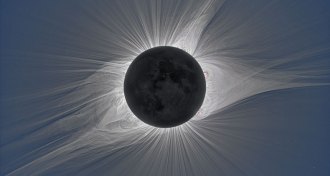 Astronomy
AstronomyAstronomers scrutinized last year’s eclipse. Here’s what they’ve learned
Astronomers observed the 2017 total solar eclipse from the ground and the air, and found some never-before-seen features of the sun’s atmosphere.
-
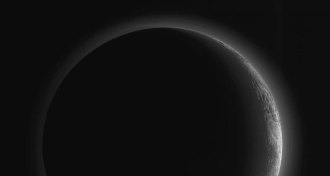 Astronomy
AstronomyPluto’s demotion ignores astronomical history
A historical review of asteroids’ planetary status suggests Pluto’s demotion was not justified.
-
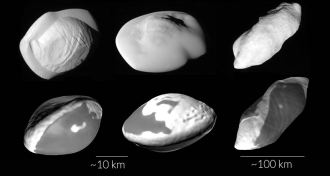 Planetary Science
Planetary ScienceSatellite smashups could have given birth to Saturn’s odd moons
Nearly head-on collisions between icy moonlets might be responsible for the peculiar shapes of some of Saturn’s moons, computer simulations suggest.
-
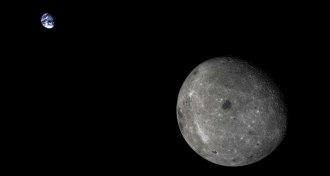 Planetary Science
Planetary ScienceChina is set to launch a satellite to support a future lunar rover
China is set to launch a satellite to support a future lunar rover that will make the first-ever visit to the farside of the moon.
-
 Animals
AnimalsReaders amazed by Jupiter discoveries, giant viruses and more
Readers had questions about the latest findings of Jupiter, giant viruses being recognized as a new kingdom of life and tardigrade poop.
-
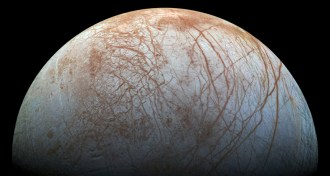 Planetary Science
Planetary ScienceAnother hint of Europa’s watery plumes found in 20-year-old Galileo data
A fresh look at old data suggests that NASA’s Galileo spacecraft may have seen a plume from Jupiter’s icy moon Europa in 1997.